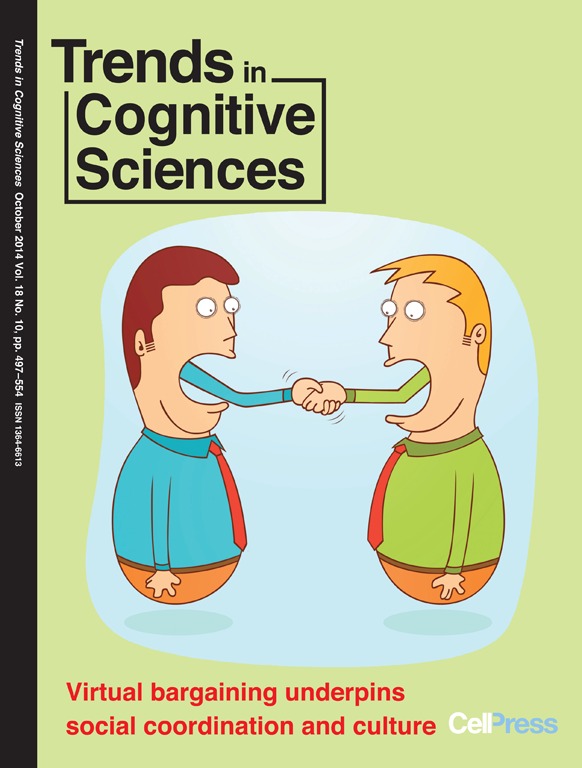October 3, 2014, by Suzanne
Two new papers on ‘virtual bargaining’ as a foundation for social interaction, culture, and society
In social interactions people often act jointly: they take turns in conversations, coordinate their actions in rowing, football or improvised dance, perform complementary tasks in cooking, assembling furniture, or, perhaps, even in elementary economic transactions. But how do such joint actions work? And how, in particular, do people successfully coordinate with each other, without explicit communication? This paper introduces the idea that joint endeavours arise from virtual bargaining—people reason about how they would agree to ‘coordinate,’ if they could bargain. If it is ‘obvious’ which bargain they would choose, then communication is unnecessary, then they can choose it directly. Now, of course, each new bargain is informed by precedents from previous bargains. If you previously held the hammer while I held the nail, it’ll be easier to coordinate on this arrangement when it arises again; so pretty soon individual bargains may be transmuted into unwritten rules, which can be layered on top of each other in every more complex layers. We speculate that explicit systems of rules (governing organisations, games, languages, or political systems) may be partial codifications (and modifications) of unwritten rules that have emerged spontaneously from layers of virtual bargains.
The virtual bargaining project is a mix of game theory, psychology, and organisational theory; we hope to apply these ideas in the future to topics such as organisational structure and incentives, natural language pragmatics, ethics and political philosophy. Virtual bargaining can be viewed as a type of ‘team reasoning,’ but where the actions of the team are determined by the bargains that would be struck between the agents that compose them.
By Nick Chater, NIBS Co-Investigator at the University of Warwick
Misyak, J. & Chater, N. (2014). Virtual Bargaining: A Theory of Social Decision-Making. Philosophical Transactions of the Royal Society: B. Biological Sciences.
Misyak, J., Melkonyan, T., Zeitoun, H., & Chater, N. (2014). Unwritten rules: Virtual bargaining underpins social interaction, culture and society. Trends in Cognitive Sciences, 18, 512-519.
Previous Post
Why we need behavioural economicsSorry, comments are closed!

